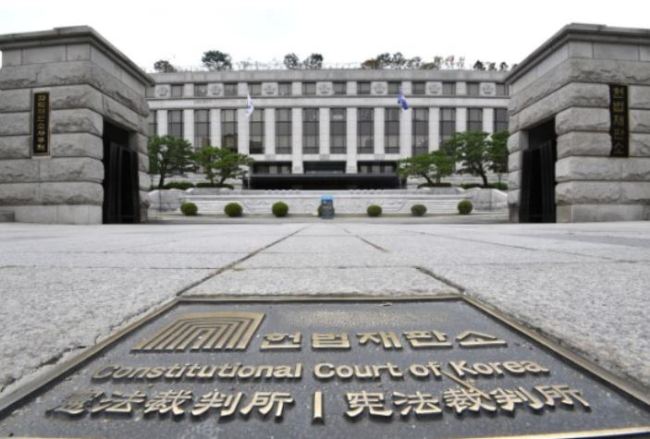
In an important ruling, the Republic of Korea’s Constitutional Court has found that the country’s policy of indefinitely detaining migrants, refugees, and asylum seekers without due process guarantees is unconstitutional.
The Republic of Korea’s Immigration Act (Article 63.1) provides that migrants, refugees, and asylum seekers can be detained indefinitely without any due process considerations such as a review by an independent authority. It provides no exceptions for children, victims of trafficking, or other at-risk groups.
This practice has led to numerous rights violations and has been extensively criticised by observers, including national NGOs and UN human rights mechanisms. The UN Committee on the Elimination of Racial Discrimination, for example, has urged the country to amend its legislation to ensure that people are detained for the shortest possible time, and that detention orders are reviewed by an independent mechanism.
Several people have also filed lawsuits, alleging severe rights abuses as a result of Article 63(1). One recent lawsuit concerned the case of a 10-month-old child who was detained for two months and who was only permitted to see her father for one hour each day; another concerned an Egyptian national who applied for refugee status but was immediately placed in detention.
Importantly, the country’s Constitutional Court had previously (in 2016 and 2018) found the Republic of Korea’s policy of indefinitely detaining non-nationals without due process guarantees to be constitutional. The new finding, thus represents a significant course correction in the court’s views of Korea’s immigration detention powers. However, significant work remains to change the country’s laws so as to align them with the new ruling as well as to ensure that they are in line with other international human rights standards.

In a public statement shared with the Global Detention Project, a group of lawyers involved in the case said: “Today’s decision of unconstitutionality aims to prevent such human rights violations from occurring in the future. In this regard, it is crucial to revise the Immigration Act to align it with the Constitutional Court’s decision and promote human rights. Specifically, the Act should be amended to reflect international human rights standards that prohibit the detention of migrant children entirely. Following the decision, it is also important for the National Assembly and the Executive to set a reasonable upper limit on the detention period with reference to good practices – Taiwan has set the limit at 100 days, and Israel at 90 days in response to similar decisions made by the Constitutional Courts. The revision and amendment should be carried out carefully and thoroughly to ensure that violations do not recur.”
Observers in the country have long decried the treatment of immigration detainees as well as conditions in the country’s dedicated immigration detention centres (termed “processing centres”), its transit detention facilities at ports of entry, and its holding cells at immigration branch offices. In a 2020 review of detention practices in the Republic of Korea, the Global Detention Project reported that asylum seekers who are refused asylum procedures at the border “are sent to a Deportation Waiting Room, pending their repatriation. APIL (Advocates for Public Interest Law) argues that the unbearable conditions in the Deportation Waiting Rooms may lead some applicants to leave Korea, which may constitute de facto refoulement.”
In October 2021, there was widespread outrage when security footage emerged showing a Moroccan man in a tiny cell in the Hwaseong detention facility, his wrists and ankles tied behind his back and his head encased in headgear tied together with cable ties and tape. More recently, in January this year, a joint investigation by the Korean Bar Association and UNHCR found that most detention facilities fail to guarantee detainees’ basic human rights. Amongst numerous concerns, they flagged the 24-hour surveillance camera filming of detainees and minimal access to outdoor space.


